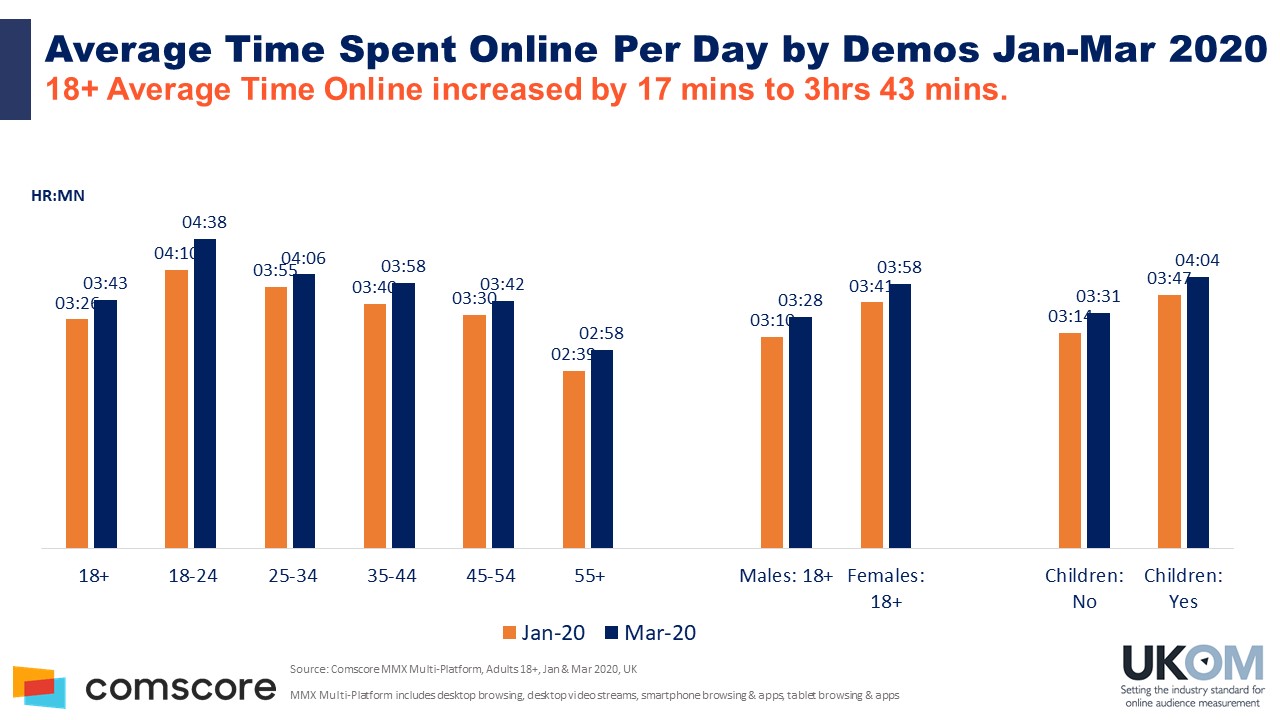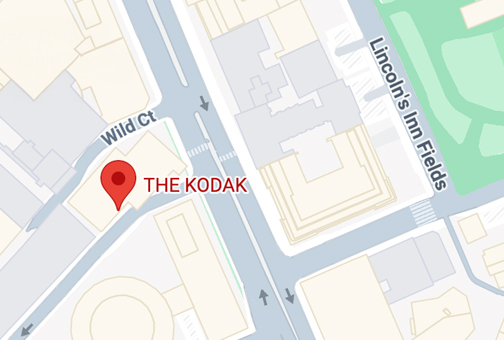There’s no communications sector more at the forefront of keeping the UK connected during coronavirus than online. Ofcom has played its part in the early stages of lockdown by working with telecoms companies and the Government to keep the UK connected. Our engineers and technicians are key workers; we’ve helped to ensure fixed and mobile connections have been resilient, including in more rural and remote parts of the UK. Several streaming services and gaming companies have helped manage congestion by limiting bandwidth used by their services. And telecoms companies have also helped by avoiding disconnections for vulnerable consumers.
In the meantime, UKOM presented a fascinating snapshot at the IAB Research Breakfast on 29 April, looking at March online behaviour measured by Comscore. Although March was a transition month including both pre and post lock-down behaviour (strong measures were in force for more than half of the month), there are nevertheless some clear contrasts between January and March. For example, adult internet users on average spent 17 minutes per day longer online during March and increases were seen across all online age groups.

There are many examples of online categories that have much more traffic during March. Much more time was spent visiting Government sites, those giving health advice and supermarket sites, to name a few. There are also some clear and obvious example of categories that have seen much less traffic, such as travel and real estate.
There are too many categories to investigate them all here, but here are four observations about categories that are on the up which Ofcom has an interest in.
- Social media: Some brands have gone from minority services to household names. To take two examples, Houseparty and Zoom are being used by people to socialise at distance, along with more established apps such as Skype and WhatsApp. 26 times as many adults in the UK used Houseparty in March than in January, while Zoom was used by 10 times as many.
- Online news consumption has spiked. News is a staple part of the online media landscape, but it has peaks and troughs in interest. People have wanted to keep up to date with coronavirus news, and this is reflected in increased use of online news providers including newspaper sites, BBC online and others. For example, an adult visitor to the BBC news site and/or app spent on average 19 minutes more in March compared to January
- Education online has given a new boost. Home-schooling has changed from something only a few people do to a mainstream activity under lockdown conditions. Some well-established services offer resources not only to teachers but also to parents wanting to keep their children engaged in learning. Two of the biggest sites are Twinkl.com and BBC Bitesize, each with around 2m users in March. Twinkl has more than tripled its user base from January to March.
- Video entertainment services, like YouTube and streaming services, have seen further growth. These were already widely and heavily used, reflecting ongoing consumer behaviour shifts, but they have grown even more during lockdown. While the UKOM figures do not include use of the TV set, YouTube is still the largest player (bigger than Netflix even when TV set is included). On-device app use of YouTube has risen by 7% from January to March. When we include non-app use on devices, that is 4.4 billion more minutes, or 85 additional minutes over the month for every YouTube user, age 18+. This comprises a huge range of different content – for example YouTuber exercise videos, TV-like content, music and DIY advice.
It will be interesting to see the results of April UKOM analysis, as lockdown covers the whole month. We may see the category increases getting bigger, and the decreases deepening. Conversely, some of the initial behaviours, for example panic buying, may have settled down, so we may see less supermarket website visits.
Online measurement is central to providing a currency for advertising, and also to gauge how the nation is using the internet as they are confined inside for an extended period of time. We will be looking to beyond temporary changes to signs of what might become permanent shifts.
Measuring online content comprehensively and robustly will be even more important in the future for Ofcom, if the Government decides to hand us powers to regulate online harms. We will regulate some video sharing platforms in the UK from 2021 and we look forward to collaborating with UKOM to inform our work in keeping the UK connected.
First published on Mediatel











